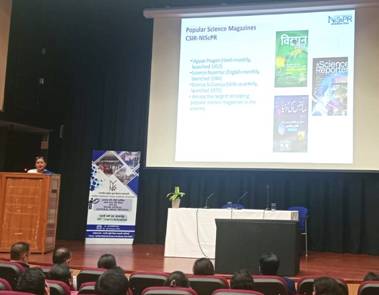New Delhi: The Indian National Young Academy of Science (INYAS) convened its ninth Annual General Body Meeting, featuring Prof. Ranjana Aggarwal, Director of CSIR-National Institute of Science Communication and Policy Research (CSIR-NIScPR), as the Guest of Honour. The event provided a platform for insightful discussions on science communication and the role of young scientists in fostering scientific temperament within society.
Prof. Aggarwal delivered a thought-provoking talk, emphasizing the importance of science communication in cultivating a scientific mindset among the masses. She shed light on the key objectives and activities of CSIR-NIScPR, underlining its commitment to science education and evidence-based policy research.
As part of the event, Prof. Aggarwal unveiled the annual newsletter of INYAS, highlighting the academy’s achievements, initiatives, and contributions to the scientific community. The newsletter serves as a comprehensive overview of the academy’s endeavors and its impact on promoting science education and networking among young scientists in India.
INYAS, established in 2014, stands as the sole recognized academy of young scientists in the country. It envisions promoting science education and fostering a robust network among young scientists. After successfully completing an incubation period of five years, INYAS entered a new phase in 2020, continuing its mission to empower and connect young minds in the scientific realm.
CSIR-National Institute of Science Communication and Policy Research (CSIR-NIScPR), a constituent laboratory of the Council of Scientific & Industrial Research (CSIR) under the Ministry of Science & Technology, Government of India, specializes in science communication, evidence-based policy research, and studies in science, technology, and innovation. The institute publishes a range of materials, including journals, books, magazines, newsletters, and reports on science and technology. Additionally, it conducts research on science communication, science policy, innovation systems, science-society interface, and science diplomacy.





